
Concentrating on how and why new concepts and techniques of making and using maps were introduced, Josef Konvitz skillfully traces the modernization of cartography during the French Enlightenment. The story he unfolds is not merely a narrative of who did what, but an analysis of how the map itself influenced attitudes toward the land and the consequent effects on planning and the development of resources. Throughout, Konvitz demonstrates the significant relationship between cartography and political, economic, and military life. He emphasizes efforts to enlarge the practical applications of maps in government and the impact of government policy on the evolution of cartography.
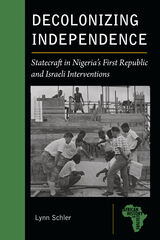
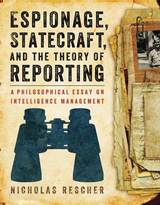
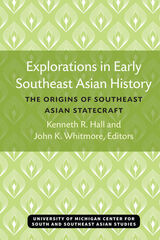

Officials mingled in the lobby of the Oktyabrskaia Hotel--shaking hands, sipping champagne, signing their names--and Germany was united. In this undramatic fashion, the international community closed the book on the drama of divided Germany. But nothing so momentous could be quite so quiet and uncomplicated, as this volume makes strikingly clear. This is the first book to go behind the scenes through access to still not opened archives in many countries. Germany Unified and Europe Transformed discloses the moves and maneuvers that ended the Cold War division of Europe.
Philip Zelikow and Condoleezza Rice, who served in the White House during these years, have combed a vast number of documents and other sources in German and Russian as well as English. They also interviewed the major actors in the drama--George Bush, Hans-Dietrich Genscher, Eduard Shevardnadze, James Baker, Anatoly Chernyayev, Brent Scowcroft, Horst Teltschik, and many others. Their firsthand accounts merge to create a complete, detailed, and powerfully immediate picture of what happened. The book takes us into Gorbachev's world, illuminating why the Soviet leader set such cataclysmic forces in motion in the late 1980s and how these forces outstripped his plans. We follow the tense debates between Soviet and East German officials over whether to crush the first wave of German protesters--and learn that the opening of the Berlin Wall was in fact one of the greatest bureaucratic blunders in human history. The narrative then reveals the battle for the future of East Germany as it took shape between West German Chancellor Helmut Kohl and the reform Communist leader, Hans Modrow--East Germany's "little Gorbachev." Zelikow and Rice show how Kohl and George Bush held off the reactions of governments throughout Europe so that Kohl could awaken East Germans to the possibility of reunification on his terms. Then the battle over the future of the NATO alliance began in earnest.
The drama that would change the face of Europe took place largely backstage, and this book lets us in on the strategies and negotiations, the nerve-racking risks, last-minute decisions, and deep deliberations that brought it off. It is the most authoritative depiction of contemporary statecraft to appear in decades.

Officials mingled in the lobby of the Oktyabrskaia Hotel--shaking hands, sipping champagne, signing their names--and Germany was united. In this undramatic fashion, the international community closed the book on the drama of divided Germany. But nothing so momentous could be quite so quiet and uncomplicated, as this volume makes strikingly clear. This is the first book to go behind the scenes through access to still not opened archives in many countries. Germany Unified and Europe Transformed discloses the moves and maneuvers that ended the Cold War division of Europe.
Philip Zelikow and Condoleezza Rice, who served in the White House during these years, have combed a vast number of documents and other sources in German and Russian as well as English. They also interviewed the major actors in the drama--George Bush, Hans-Dietrich Genscher, Eduard Shevardnadze, James Baker, Anatoly Chernyayev, Brent Scowcroft, Horst Teltschik, and many others. Their firsthand accounts merge to create a complete, detailed, and powerfully immediate picture of what happened. The book takes us into Gorbachev's world, illuminating why the Soviet leader set such cataclysmic forces in motion in the late 1980s and how these forces outstripped his plans. We follow the tense debates between Soviet and East German officials over whether to crush the first wave of German protesters--and learn that the opening of the Berlin Wall was in fact one of the greatest bureaucratic blunders in human history. The narrative then reveals the battle for the future of East Germany as it took shape between West German Chancellor Helmut Kohl and the reform Communist leader, Hans Modrow--East Germany's "little Gorbachev." Zelikow and Rice show how Kohl and George Bush held off the reactions of governments throughout Europe so that Kohl could awaken East Germans to the possibility of reunification on his terms. Then the battle over the future of the NATO alliance began in earnest.
The drama that would change the face of Europe took place largely backstage, and this book lets us in on the strategies and negotiations, the nerve-racking risks, last-minute decisions, and deep deliberations that brought it off. It is the most authoritative depiction of contemporary statecraft to appear in decades.
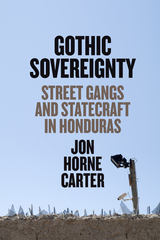
Gang-related violence has forced thousands of Hondurans to flee their country, leaving behind everything as refugees and undocumented migrants abroad. To uncover how this happened, Jon Carter looks back to the mid-2000s, when neighborhood gangs were scrambling to survive state violence and mass incarceration, locating there a critique of neoliberal globalization and state corruption that foreshadows Honduras’s current crises.
Carter begins with the story of a thirteen-year-old gang member accused in the murder of an undercover DEA agent, asking how the nation’s seductive criminal underworld has transformed the lives of young people. He then widens the lens to describe a history of imperialism and corruption that shaped this underworld—from Cold War counterinsurgency to the “War on Drugs” to the near-impunity of white-collar crime—as he follows local gangs who embrace new trades in the illicit economy. Carter describes the gangs’ transformation from neighborhood groups to sprawling criminal societies, even in the National Penitentiary, where they have become political as much as criminal communities. Gothic Sovereignty reveals not only how the revolutionary potential of gangs was lost when they merged with powerful cartels but also how close analysis of criminal communities enables profound reflection on the economic, legal, and existential discontents of globalization in late liberal nation-states.
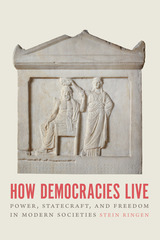
In the new century, the triumph of democracy at the end of the Cold War turned to retrenchment. The core democracies, in America and Britain, succumbed to polarization and misrule. Dictatorships, such as China, made themselves assertive. New democracies in Central Europe turned to muddled ideologies of “illiberal democracy.” In this book, Stein Ringen offers a meditation on what democracy is, the challenges it faces, and how it can be defended. Ringen argues that democracy must be rooted in a culture that supports the ability of citizens to exchange views and information among themselves and with their rulers.
Drawing on the ideas of Machiavelli, Aristotle, Tocqueville, Max Weber, and others, Ringen shows how power is the fuel of government, and statecraft turns power into effective rule. Democracy should prize freedom and minimizing unfairness, especially poverty. Altogether, Ringen offers powerful insight on the meaning of democracy, including a new definition, and how countries can improve upon it and make it function more effectively. Timely and thought-provoking, How Democracies Live is a sober reminder of the majesty of the democratic enterprise.

Eclectic essays on ethics, education, and much else besides.
Plutarch (Plutarchus), ca. AD 45–120, was born at Chaeronea in Boeotia in central Greece, studied philosophy at Athens, and, after coming to Rome as a teacher in philosophy, was given consular rank by the emperor Trajan and a procuratorship in Greece by Hadrian. He was married and the father of one daughter and four sons. He appears as a man of kindly character and independent thought, studious and learned.
Plutarch wrote on many subjects. Most popular have always been the forty-six Parallel Lives, biographies planned to be ethical examples in pairs (in each pair, one Greek figure and one similar Roman), though the last four lives are single. All are invaluable sources of our knowledge of the lives and characters of Greek and Roman statesmen, soldiers and orators. Plutarch’s many other varied extant works, about sixty in number, are known as Moralia or Moral Essays. They are of high literary value, besides being of great use to people interested in philosophy, ethics, and religion.
The Loeb Classical Library edition of the Moralia is in fifteen volumes, volume XIII having two parts. Volume XVI is a comprehensive Index.
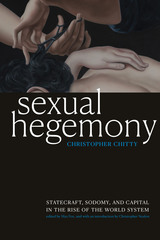
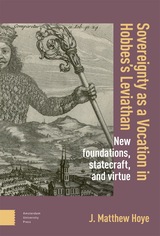
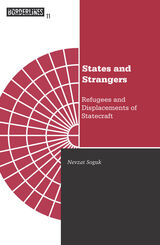
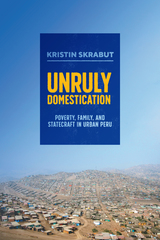
How the international war on poverty shapes identities, relationships, politics, and urban space in Peru.
Unruly Domestication investigates how Peru’s ongoing, internationally endorsed "war on poverty" shapes politics, intimate identities, and urban space in Lima. Drawing on a decade of embedded, ethnographic research in Lima’s largest and most recently founded “extreme poverty zone,” Kristin Skrabut demonstrates how Peru’s efforts to fight poverty by formalizing property, identity, and family status perpetuate environmentally unsustainable urban sprawl, deepen discrimination against single mothers, and undermine Peruvians’ faith in public officials and in one another. In the process, Skrabut reveals myriad entanglements of poverty, statecraft, and private life, exploring how families are made and unmade through political practices, how gender inequalities are perpetuated through policy, and how Peruvians’ everyday pursuits of state-sanctioned domestic ideals reproduce informality and landscapes of poverty in the urban periphery.
The only full-length ethnography written about Lima’s iconic and policy-inspiring shantytowns in thirty years, Unruly Domestication provides valuable insight into the dynamics of housing and urban development in the Global South, elucidating the most intimate and profound effects of global efforts to do good.
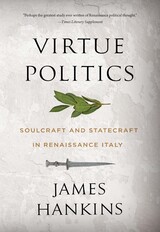
Winner of the Helen and Howard Marraro Prize
A Times Literary Supplement Book of the Year
“Perhaps the greatest study ever written of Renaissance political thought.”
—Jeffrey Collins, Times Literary Supplement
“Magisterial…Hankins shows that the humanists’ obsession with character explains their surprising indifference to particular forms of government. If rulers lacked authentic virtue, they believed, it did not matter what institutions framed their power.”
—Wall Street Journal
“Puts the politics back into humanism in an extraordinarily deep and far-reaching way…For generations to come, all who write about the political thought of Italian humanism will have to refer to it; its influence will be…nothing less than transformative.”
—Noel Malcolm, American Affairs
“[A] masterpiece…It is only Hankins’s tireless exploration of forgotten documents…and extraordinary endeavors of editing, translation, and exposition that allow us to reconstruct—almost for the first time in 550 years—[the humanists’] three compelling arguments for why a strong moral character and habits of truth are vital for governing well. Yet they are as relevant to contemporary democracy in Britain, and in the United States, as to Machiavelli.”
—Rory Stewart, Times Literary Supplement
“The lessons for today are clear and profound.”
—Robert D. Kaplan
Convulsed by a civilizational crisis, the great thinkers of the Renaissance set out to reconceive the nature of society. Everywhere they saw problems. Corrupt and reckless tyrants sowing discord and ruling through fear; elites who prized wealth and status over the common good; religious leaders preoccupied with self-advancement while feuding armies waged endless wars. Their solution was at once simple and radical. “Men, not walls, make a city,” as Thucydides so memorably said. They would rebuild the fabric of society by transforming the moral character of its citizens. Soulcraft, they believed, was a precondition of successful statecraft.
A landmark reappraisal of Renaissance political thought, Virtue Politics challenges the traditional narrative that looks to the Renaissance as the seedbed of modern republicanism and sees Machiavelli as its exemplary thinker. James Hankins reveals that what most concerned the humanists was not reforming institutions so much as shaping citizens. If character mattered more than laws, it would have to be nurtured through a new program of education they called the studia humanitatis: the precursor to our embattled humanities.
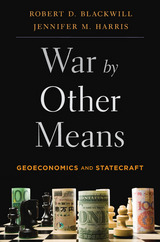
A Foreign Affairs Best Book of 2016
Today, nations increasingly carry out geopolitical combat through economic means. Policies governing everything from trade and investment to energy and exchange rates are wielded as tools to win diplomatic allies, punish adversaries, and coerce those in between. Not so in the United States, however. America still too often reaches for the gun over the purse to advance its interests abroad. The result is a playing field sharply tilting against the United States.
“Geoeconomics, the use of economic instruments to advance foreign policy goals, has long been a staple of great-power politics. In this impressive policy manifesto, Blackwill and Harris argue that in recent decades, the United States has tended to neglect this form of statecraft, while China, Russia, and other illiberal states have increasingly employed it to Washington’s disadvantage.”
—G. John Ikenberry, Foreign Affairs
“A readable and lucid primer…The book defines the extensive topic and opens readers’ eyes to its prevalence throughout history…[Presidential] candidates who care more about protecting American interests would be wise to heed the advice of War by Other Means and take our geoeconomic toolkit more seriously.
—Jordan Schneider, Weekly Standard
READERS
Browse our collection.
PUBLISHERS
See BiblioVault's publisher services.
STUDENT SERVICES
Files for college accessibility offices.
UChicago Accessibility Resources
home | accessibility | search | about | contact us
BiblioVault ® 2001 - 2024
The University of Chicago Press









